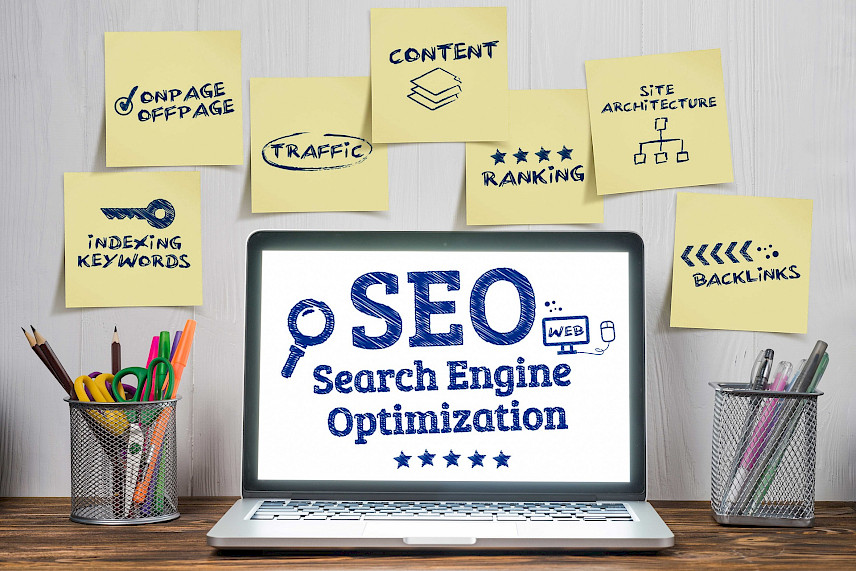
Getting SEO (‘Search Engine Optimisation’) right is hard. SEO is an industry all its own. It can be plagued with ‘experts’ spamming your inbox (that often do more to annoy and confuse than deliver actual results). However, there are also legitimate, specialist companies who can properly manage your SEO and deliver great results.
No matter who you might choose to look after your SEO here are five things you really do need to understand before you start an SEO journey.
It's a Moving Target
The objective of SEO is to ensure that a link to one of your website pages is presented when someone types an applicable search word or phrase into a search engine. You want this to happen so that potential clients (or other researchers) find you when they are looking for the service you provide or products you offer.
The mechanics of SEO are highly complex, and Google (and their competitors) keep their search process technology highly secret. Oh, and they change it. Often. This is the first reason we’re dealing with a moving target. If we tweak our website content to get great results in search today, Google will be changing their process for delivering results tomorrow and the next day and so on, and our results will change.
To make matters worse, there are other things that are changing too. If you're in a competitive market (who isn’t?) then your competitors will be doing the same thing as you and SEO will be an ongoing game of leapfrog as to who gets the top spots in search.
Finally, the people you are trying to attract will change their search terms as they research and get more knowledgeable. They might start their search looking for a ‘smart home installer’ and end up searching for a ‘home automation integrator’ as they learn more about the market. You do that too, don't you…?
You’ll Need to Research First
As you might have gathered from point one, your search results will vary over time and that means you need to be analysing your results and making changes to your website on a regular basis.
Analysis comes first and this includes setting SEO goals. These will include deciding how much of your website traffic is expected to come from search (as opposed to direct traffic, social media traffic and so on). Then you’ll need to research the current popular search terms for the product or service you provide. This should give you a collection of single words, plus short and longer search phrases. For example, we could focus on ‘Smart Home’ but we might also consider ‘Smart Home Installers Near Me’ or ‘Smart Home Installers near me that build home cinemas’.
Finally, you’ll need to note your current performance in search for each of the words and phrases you’ve chosen and set targets for improvement.
Every Page Is Different
For many website owners their home page is pretty much the only one they focus on when thinking about SEO. It’s an obvious choice as the home page is (hopefully) where their best content will be presented. It will also be where we find a simple overview of the company and what it offers.
While home page SEO is highly important, other pages can be just as powerful. For example, if you’re an integrator that offers an almost identical service portfolio to your local competitors, then focusing SEO efforts on pages covering the subjects your competitors don’t might get you higher in search results for those topics. So, if all your competitors offer home cinema, distributed AV and lighting, but not security, then your security page might be a good one to focus on.
You Need to Learn Your Customers’ Language
When it comes to day-to-day industry speak, professionals tend to converse in their own language. It's a language full of acronyms, catch-phrases and other nonsense that is impenetrable to normal people. But our potential customers are (generally) ‘normal people’. Therefore, we need to understand and use our customer’s language in our website content and in our SEO efforts. We say ‘Home Automation’ they say ‘Smart Home’ etc.
Moving to a ‘customer language only’ strategy can be scary. It can seem like we’re dumbing down our hard-earned technical understanding, that we might no longer appear to be as knowledgeable or ‘expert’ as we really are. However, no customer will ever complain that you made things too simple to understand. If we’re asking our customers to buy from us, (sometimes they are even inviting us into their homes), the least we can do is use words and terms they properly understand.
It's an Ongoing Process
If you are still reading, then thank you! Chances are you have the stamina required for ongoing SEO success. You will need that stamina as SEO demands regular analysis, updates and goal setting if you are to succeed over time.
We've already stated that Google’s search process changes regularly, as do the actions of your competitors and behaviours of your potential clients. You’ll need to keep up-to-date with those and act accordingly.
Over a longer timescale the entire market can change, as can the world economy. As these things morph so we need to keep abreast of these changes, understand how our customers search habits are changing and update our SEO plans as a result.
And Finally
We, as a company, are not SEO specialists and we do not offer SEO services. The advice given here is based on seeing SEO from the standpoint of a website developer, working with dozens of clients over more than ten years. We deliver the tools within website-builds that allow SEO experts to do their job. If your website doesn’t make that job easy then, of course, we’d love to help you with that.





